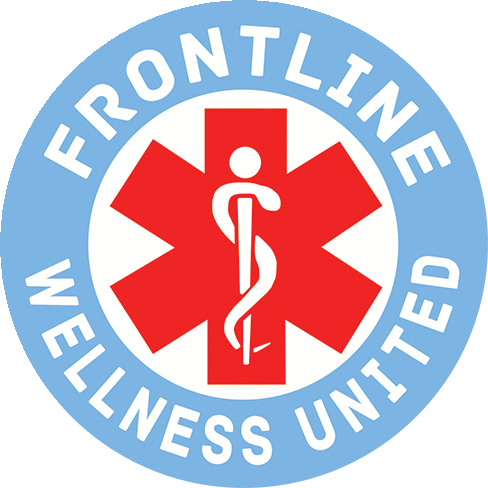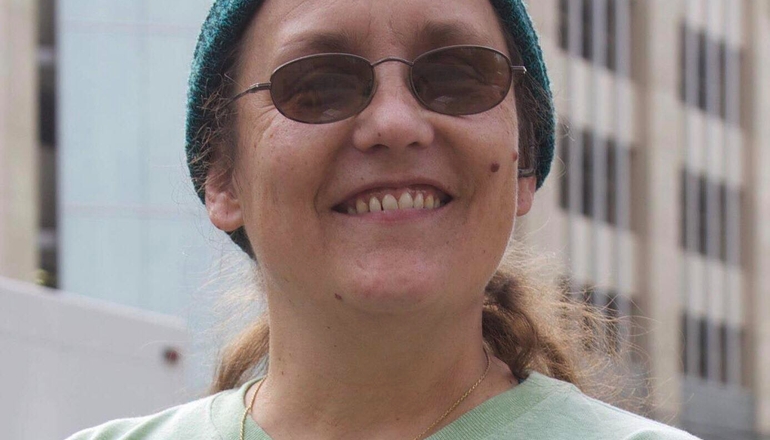Duck Bardus, Ohio, USA
Duck Bardus, Secretary, Board of Directors
Duck Bardus currently does food outreach and advocacy for the Mid-Ohio Foodbank. They earned a BA in English from Ohio University in 2007 and have spent the following 10 years serving people living in poverty in Ohio, Texas, and Spain.
For the past three years they have provided operational support to statewide political campaigns to increase voter registration, address climate change, and implement criminal justice reforms with the Ohio Organizing Collaborative.
Duck served as head of safety at the Cannonball District Emergency Shelter on the Standing Rock Sioux Indian Reservation in the winter of 2016. They were responsible for sanitation, fire code, and all physical aspects of the space that pertained to health and safety. In their free time they enjoy reading fiction, hiking with their dog, and vegetables.
Nicholas Taggart Long, Missouri, USA
Nicholas Taggart Long, Training Director & Firefighter/Paramedic
I work as a paramedic-firefighter in St. Louis, Missouri, where I live with my wife and two children. I’ve been interested in emergency services, as well as social and environmental justice, for as long as I can remember.
I love finding opportunities to share my knowledge and experiences while working for social and environmental justice. I appreciate helping and training individuals engaged in the essential work of protecting one another and our planet.
I’ve benefited from a vast array of training. I hope to facilitate learning in a way that is approachable, interesting and realistic. I’m excited about Frontline Wellness, and I hope to contribute to the important and significant work it has undertaken.
Lisha Sterling, President, Board of Directors
Lisha Sterling, California, USA
Lisha is best known for her work as executive director of Geeks Without Bounds, “an accelerator for humanitarian projects.”
What that means in very practical terms is, for one, that Lisha and her team roam the earth building communications networks for communities that want to enter the online world. Sometimes that happens here in the U.S., where Geeks is based.
Lisha lead the team of technicians that established Internet services for civil-resistance workers in the Dakota Access Pipeline camps near Cannonball, North Dakota 2017-2017. That (very loosely knit) group also set up encryption and cyber-security protections for activists working in the camps.
That work (as much of Lisha’s word does) involved choosing, setting up, and managing the physical devices necessary for activists to connect online, do research, organize activities, plan and implement activities—and do so without intrusion or threat from third (let's say uninvited) parties. For those of us in the medical community serving the camps, it meant being able to access email, find the answers to medical questions, connect with Standing Rock Sioux Indian Reservation leaders, order supplies, and so on.
But Lisha’s work can get pretty exotic. A quick scan of Geek’s website, and the projects team members work on, yields some fascinating topics: building a wireless network in Ecuador that will cover a million acres of land in the Amazon in order to track pollution and illegal incursions into Indigenous lands; hosting hackathons (at multiple locations for four years) for NASA’s International SpaceApps Challenge (ISAC); facilitating and participating in hackathons in eastern India, Madrid, Amsterdam, Washington, D.C., podcasting, developing apps that will help grassroots disaster-response groups gather and track info in a crisis, cybersecurity consulting … and the list goes on.
She says she started coding around age 8, and eventually discovered she had a skill for not just computer languages (Python, Javascript, Pearl, etc.) but human ones as well. Lisha speaks and reads English, Spanish, Portuguese, and Hebrew. She can read and converse in French, Italian, German and Dutch, as well as about 10 other languages that she says she’s "out of practice with."
“Languages are like piles on my desk. If I don’t get to them, they get buried under something else. But if I pick them up and start working with them, I can get some fluency back.”
She worked in Amsterdam in 2015 and discovered she could speak a reasonable amount of Dutch after about a week “because Dutch is derived from low German, the same as Yiddish is.” Yes, she speaks some Yiddish, too.
Lisha works as a Frontline member on cybersecurity for activists, Internet access in the field, translation, open source applications and coding, when needed.
Lisa Ling, California, USA
Lisa Ling, Board of Directors
Lisa joined the military in 1991, serving as an army medic and nurse before transferring to the Air National Guard (ANG). In the Guard, she became a communications technician, working on various types of electronic equipment including DCGS (Distributed Common Ground System; the U.S. Air Force defines DCGS as its "primary intelligence, surveillance and reconnaissance collection, processing, exploitation, analysis and dissemination" system).
Besides her overseas deployments and prior years in the U.S. drone program, Lisa served with the 234th intelligence Squadron and 48th Intelligence Squadron at Beale Air Force Base from Oct 2007-Sep 2009. The 48th Intelligence Squadron provides communications and logistics maintenance for the DCGS.
She served more than six years on active duty and more than 15 years as both active and inactive National Guard.
She decided to speak out against the misuse of drones after traveling to Afghanistan and seeing for herself how what she participated in was not a war on terror, but a war of terror. She has spoken out against armed drones killing with inaccurate data, and the program's immense unchecked power around the world, writing for (and sometimes being featured in) the Los Angeles Times, the Daily Beast, on Cyberwar—Viceland, and ABC Australia.
Lisa is one of three protagonists from the U.S. drone program featured in the documentary film National Bird, directed by Sonia Kennebeck.
For Frontline, Lisa is an essential networker among whistleblowers and military veterans who serve now as social-justice activists. Being an extremely savvy technician, she also advises Frontline (and therefore activists as a whole) on issues regarding unwarranted surveillance, malicious use of technology to undermine resistance movements, and cybersecurity.
You can follow her on Twitter: @ARetVet
Robin Chancer, Social Worker & Therapist, Board of Directors
Robin is a clinical social worker in Akron, Ohio, and works through a legal-aid society, helping refugees and unaccompanied minors secure asylum in the United States.
Robin Chancer, California, USA
She was born in Los Alamitos, California and attended Pamona College in Claremont, originally intending to be an English teacher. But she was assigned an internship with a high school teacher and discovered that what she loved most “was building relationships.”
She later graduated with a master in social work from the University of North Carolina at Chapel Hill. “I felt like counseling and building relationships and getting involved in social justice was more my thing than teaching.”
Her first post-graduate job was working at a community health center in North Carolina as a social worker for pregnant women—primarily immigrants from Latin America.
“That’s where,” she says, “my passion really took off. Working in rural North Carolina was formative, seeing how isolated the locals were from immigrants. Seeing the injustice, seeing that immigrants weren’t treated as humans either by institutions or people. It broke my heart.”
That led to a job in Guatemala, coordinating a health education program for men, then on to Montgomery County, Maryland where she served as a mental health therapist with Latin Americans who'd recently immigrated to the United States. Robin has also worked in outpatient therapy, using Dialectical Behavioral Therapy for treating a range of mental-health struggles.
She’s an excellent essayist, publishing mainly at medium.com. Some of her recent work includes essays on sexual consent, the lives of immigrants (and how we might contribute to their having better lives), some excellent advice for activists on “How to Stay Sane if Trump is Driving you Insane” and other stories that manage to be both philosophical and emotive and straight to the point at the same time.
As a member of Frontline, Robin promotes social-work-and-mental-health services for activists. She has a deep commitment to social justice for people and communities that are often dis-empowered and at risk of harm. Her writing is a powerful challenge to patriarchy, racism, sexism, and mis-perceptions about immigrants and people of color.
She says, “In my work, I want to help people feel they’re an important part of our community. It strikes me how quickly people improve when someone reaches out, respects them. That’s where I get my sense of spirituality in the world, from doing this work.”





